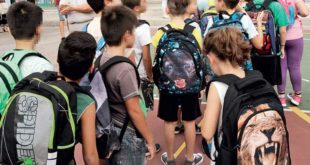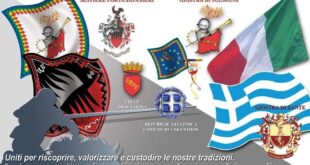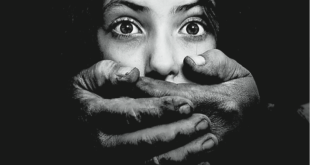Greece’s Carnival season, the Apokries, reaches its peak over the weekend with the biggest Carnival Parade, the Carnival of Patras, to take place on Sunday. The weekend marks the end of masquerading, eating, drinking and dancing and opens the way for the 40-day fasting until the Greek orthodox Easter.
Staring withe the Clean Monday, Καθαρα Δευτέρα, Greeks are supposed to clean themselves physically and spiritually and prepare themselves for the Resurrection of Jesus Christ.
- “Apokries” literally translated mean “Off Meat”
As the last Sundays of Apokries is associated with eating special food, the last Sunday is called “Cheesefare Sunday” or Tyrofagos. Only dairy products should be consumed on this day to prepare the body for the Lent.
Independently of the Greek Orthodox dietary directive for the last weekend of Apokries, Greeks wear their Carnival costumes, go out and enjoy themselves.
Traditional customs to exorcise the Winter or the Carnival revive across Greece and each region has its special customs linked to particular cultural heritage.
Patras: The King of Greek Carnivals
The city of Patras in North-West Peloponnese hosts the biggest carnival in Greece, and one of the biggest in Europe.
The “king” of Greek carnivals begins in January with an announcement by the town crier, featuring a variety of events, including balls, parades, street theater and other events.
The carnival reaches its peak with the Night Parade on Saturday where participants take to the streets holding torches, and the big Carnival Parade that starts at 2:00 pm.
160 groups take part in the Carnival Parade 2019, with spectacular floral, artistic, and satirical floats complete with Carnival King and Queen in full splendor.
Xanthi: The Folk Carnival
Second most popular Carnival in the country is hosted by the city of Xanthi in North-East Greece. . The Xanthi carnival began in 1966 as an urban event, but has come to incorporate many elements that rest on the city’s multicultural character, making it the most folkloric of urban carnivals.
The highlight is the Folk Parade on the Saturday before Clean Monday: folk dance groups from the town’s Cultural Associations and guest groups from all over Greece parade through different neighbourhoods of the picturesque Old Town, singing and dancing, and finally merging in an all-night Balkan folk music fiesta in the main square.
On Cheesefare Sunday, the festival reaches its peak with the custom of Burning the Tzaros, a human effigy placed on top of a pile of brushwood.
The “Old Men” of Skyros
The carnival on the island of Skyros, Sporades, comes alive with the sounds of clanging goat bells. Local men wear the bells around their waists and play the role of geros (old man, Elder), a figure dressed in a hooded black cape and hanging goat skin. The “old men” run through the streets individually or in groups, singing, dancing and making as much noise as possible, while locals and guests toast, drink and dance with them.
The men are accompanied by Korela (girl), a man or a woman wearing a traditional female dress and same mask. Korela holds a handkerchief and dances around the old man.
Many scholars believe that the custom is a remnant of ancient Dionysian celebrations. The older inhabitants of the island insist that the Elder and the Korela come every year to remind the Skyrian people of a natural disaster that destroyed all the herds of the island where a shepherd with the bells of his sheep and goats went to the village to warn others about the destruction.
“Flour War” in Galaxidi
The harbor town of Galaxidi in Central Greece is one of Greece’s top destinations, especially during carnival season. During Carnival, the town revives the unique custom of “alevromoutzouromata”, which dates back to the heyday of the town’s merchant fleet as a fun event for departing sailors at the end of the Carnival season. On Clean Monday, Galaxidi is transformed into a battlefield, as hundreds of people pelt one another mercilessly with large quantities of flour and dance around the fires – the most daring even jump over them!
“Genitsaroi and Boules” in Naoussa
The custom of “Giannitsaroi and Boules” is the most renowned happening in Naoussa, West Macedonia. Participants include exclusively unmarried men who dress-up as “Genitsaroi”, janitors. “Boula”, the bride, is also performed by a man.
“Ragoutsaria” in Kastoria
In Kastoria, the “Ragoutsaria”, as the local Carnival custom is called, refers to the revival of the ancient Dionysian ceremonies and aims to help the locals forget the troubles of the year. Beyond its symbolic interpretations, Ragoutsaria give the city’s festivities a playful touch, attracting visitors from all over Greece.
PS Whatever the origins of the Greek Carnival customs, go out and enjoy the parades and the dance
The post Apokries: The Carnival season revives old customs across Greece appeared first on Keep Talking Greece.
 Zakynthos Informer Zakynthos Informer
Zakynthos Informer Zakynthos Informer




